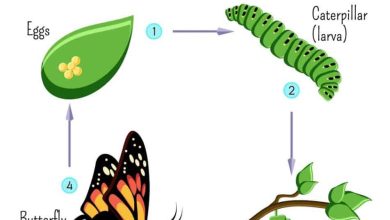What Does It Actually Mean When a Cat Bites You? – Petcube
If you’ve spent any time with cats, you know how quickly a loving hug can turn into a strong bite. One minute Mr. Pounce is purring merrily and the next he’s sinking his razor sharp little teeth into you. As a cat owner, this can be extremely painful. It’s not always physically painful, but the sting of this sudden betrayal can be very deep.
But in all seriousness, why is your cat biting you? this post will walk you through the various reasons your cat may be biting, what this means, and how you can deal with it.
why does my cat bite me?
First, let’s establish some context. How is the situation when your cat bites you? this will tell us a lot about why your cat may be biting you and what that bite is telling you.
kitten bites
Kittens love to play and often hunt with humans. they will often use their needle-sharp teeth to bite during play. fear not: you have not adopted a bloodthirsty killing machine, this is just an important part of the teething process.
While it’s fun to play with kittens and encourage them to chase and chew on fingers and toes, it’s not recommended to encourage this behavior. your cat will only continue this into adulthood and let’s just say while kitty teeth hurt, they are just a smaller version of adult teeth…
playful bites
Cats are born hunters and will always need an outlet for this urge to stalk and hunt for prey. If you don’t provide adequate stimulation to your cat, they will start to use it as a convenient, meaty chew toy. They don’t have bad intentions, so don’t take it personally. they just want to vent their energy and have a good time.
Many parents are unaware that it is essential to set aside daily playtime with your cat to give them a good stalking and hunting session. not only is it great exercise for them (useful for combating weight gain, especially in indoor cats), but it’s a healthy outlet for any frustration and energy and all-important hunting instinct.
biting during caresses
A cat suddenly biting a human hand during a petting session is a very common scenario. You’re petting Sir Pounce, who seems to be delighted for attention and purring loudly, and suddenly, a stabbing pain rips through your arm as a set of strong jaws drives razor-sharp teeth deep into your flesh.
sound familiar?
if you ask most humans, they’ll tell you cat bites weren’t provoked at all.
The truth is, cats often communicate their feelings to us using their body language and we simply don’t pay attention to the signals. if he misses the signs that sir pounce has had enough pets, you’ll still leave him no choice but to escalate from subtle hints to body language equivalent to screaming: the bite.
This is not intended to be aggressive or intended to hurt you. it’s just your cat’s way of telling you firmly that he’s had enough.
love bites
Cat love bites are small bites or soft nibbles and usually don’t hurt too much. these are believed to be learned from mother cats who often nip or bite their kittens while grooming them. It is not an aggressive or threatening action at all, but rather a playful bite.
aggressive bites
If your cat is in a fight mode, upset, scared, or feeling threatened, she will usually let you know by puffing up her fur, spitting, hissing, and arching her back. in this state, your cat is telling you to back off. getting closer will more than likely result in a bite.
These defensive bites are deep, painful, and designed to scare you away. if you are bitten, be sure to clean the wound and seek medical attention. infection in these wounds is common.
According to the study, cats and other domestic animals are prone to bites when under stress. the findings showed that after the natural hazard, the top three trauma complaints included pet bites.
Cat bites accounted for 40 percent of people who suffered animal bites. after the catastrophe, cat bites oozed out. explains why cats may suddenly bite you even if such behavior is unusual for your purring friend.
remember, your cat didn’t bite you because it doesn’t love you. they bit you because you didn’t respect the line they drew. scolding or yelling at your cat for biting you will do more harm than good.
what does it mean when a cat bites you?
So, we’ve covered a number of contexts in which cat bites are common. but when do we know if we should worry? what is considered bad biting?
Usually a bite is a sign that you haven’t been paying attention to what your cat is saying. but sometimes cats that bite can be a sign of something else.
Know what’s normal for your cat, so when something changes, you can take appropriate action early on. A cat that suddenly starts biting when it has never bitten before is probably in pain. In the wild, it is not good for a cat to show that it is weak or in pain, and it will usually hide it behind the aggression. if you suspect your cat is in pain, contact your vet immediately.
how to prevent cats from biting?
biting is a natural part of being a cat. most of the time, biting can be avoided by paying close attention to the context and the subtle signals your cat is sending you.
If your cat bites, there’s usually a good reason for it, and you’ll need to be able to spot the signs in order to correctly decipher the reason for the bite.
here are some reasons cats bite and warning signs to look out for if you want to avoid being bitten:
overstimulation
the signs here are usually very subtle, but if you know them, it’s very easy to avoid getting bitten. If you see any of the following when you pet or play with your cat, that’s your cue to back off. your cat uses the following warning signs:
- whistling and twitching tail
- flattened ears
- stiff posture
- whiskers forward
- dilated pupils
- excess grooming and hair loss
- hiding
- changes in sandbox behavior
- whistle or growl
- changes in appetite
frustration and aggressive play
This type of aggression is common in kittens and young cats that are the only pets in the house. this basically equates to playing a little rough around the edges in the absence of siblings, prey, or any other healthy outlet for their hunting instincts.
If your cat is digging her toes at you, jumping at you around corners to wreck your ankles, or playing too rough with you, here are the signs you need to make sure you offer her healthy alternatives.
yes, it’s cute when a kitty plays and bites your hand, but when she gets older and older (and her jaws get stronger and her teeth sharper), she’ll be less adorable. provide regular healthy playtime and appropriate toys.
healthy play includes imitating a hunt. allow your cat to stalk, chase, run and jump. but before they are completely exhausted, give them the satisfaction of catching their ‘prey’ and ‘killing’ it. Skipping these last two steps will only lead to an even bigger buildup of frustration. be sure not to encourage overly aggressive behavior.
if you get bitten, don’t squeal or yell, don’t even yell; your cat may see it as a stimulus. keep quiet and offer a more appropriate toy instead.
fear, pain, stress
if the bite is accompanied by any of the following, your cat may need to be checked out by the vet:
If your sweet kitty suddenly bites you when she never has before, it’s probably pain related. a cat in pain will hide his vulnerability behind aggression – approach with caution, but definitely get kitty to a vet sooner rather than later.
If you have children, it’s important to teach them how to interact with a cat to create a safe and happy environment for everyone. Children often treat cats roughly or chase and corner them in a way they think is playful. unfortunately, cats may interpret this behavior slightly differently and feel trapped, threatened and stressed, leading them to respond defensively in the form of scratching and biting.
manage your reactions
It’s important that you don’t try to punish your cat for biting. respond calmly and try not to add more emotion to the situation. yelling or stomping will only scare your cat and serve to exacerbate the problem and potentially damage any trust you have built with your cat. never attempt to physically discipline a cat.
Cats will not associate their yelling as punishment for biting, so their attempts to provide consequences for biting will inevitably be unsuccessful. your best bet is to redirect your cat to a more appropriate behavior and reinforce that behavior by positively rewarding it with a treat. aggression on your part will damage your relationship with your cat, thus creating more problems than it intends to solve.



